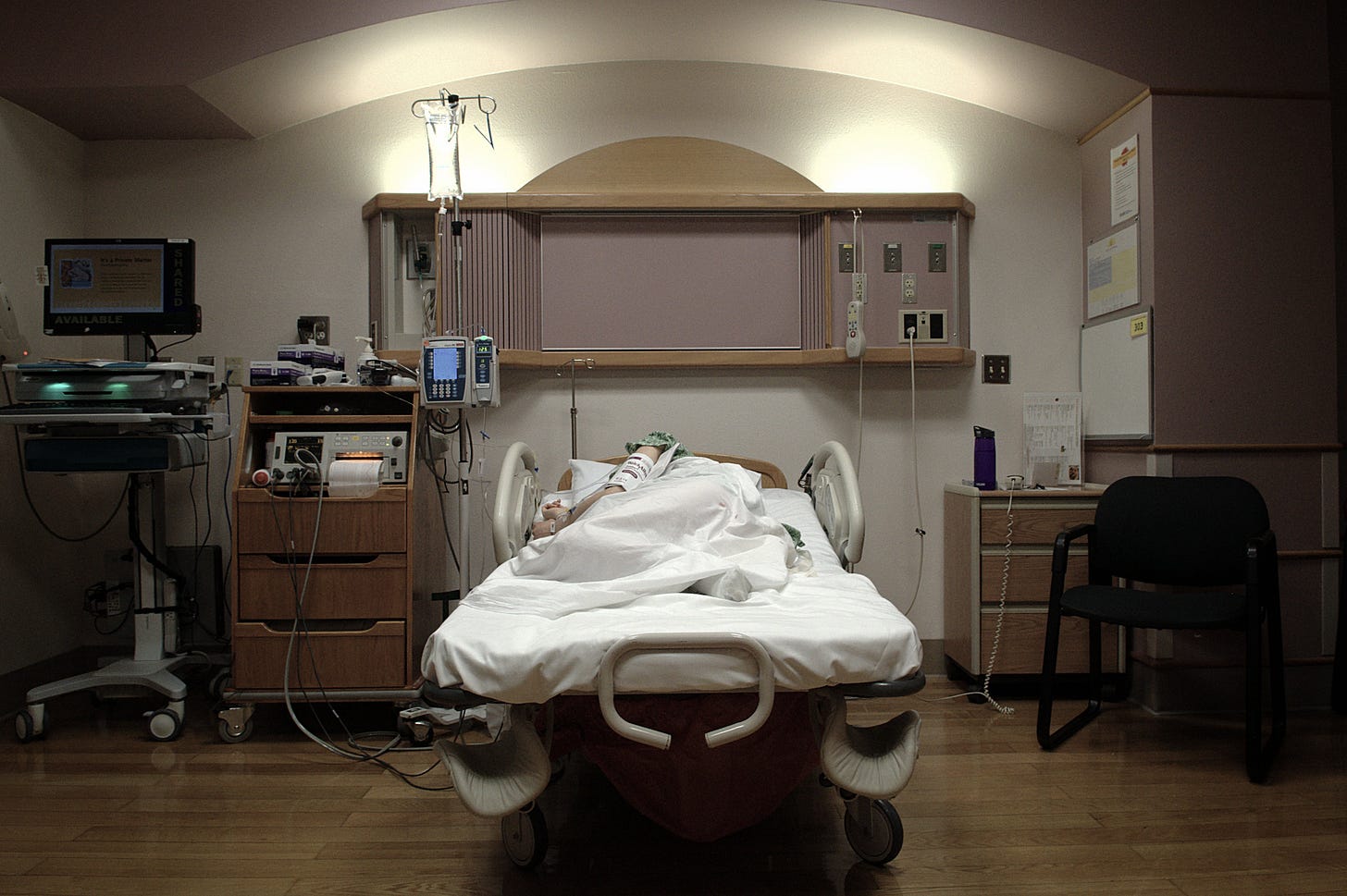Leaders make Iowa less safe for sex and childbirth
It’s time to put the focus where it should always have been: on making Iowa a better, safer place for families.

As a nation, Americans believe in progress. We believe that over time, we should be safer, healthier, and generally better off. And so we have elected leaders we think can move us forward at costs we can accept.
Unfortunately, Iowa’s political leaders have chosen political rabble rousing over sensible policy. So rather than progressing, Iowa has become a more dangerous place for necessary, fundamental human activities: it is more dangerous to have sex, give birth, and be born here than it was as recently as 2016.
Consider that:
Sexually transmitted infections (STIs) have increased sharply, with a 55% rise in cases of syphilis alone.
The number of mothers dying from childbirth has more than doubled.
Iowa “leads” the four states where infant mortality has recently increased dramatically: The rate of infants dying in Iowa is up by 30%, almost twice that of any other state.
Rural Iowans have even higher infant mortality.
As is so often the case, things are still worse for Black Iowans, who have six times the maternal mortality rate and more than twice the infant mortality rate.
So why has making new Iowans become so much less safe? In a word, politics. In 2017, Republicans achieved the trifecta of Iowa government, securing the Iowa House, Senate, and governor’s office. Those Republicans promptly cut off all state-controlled funding for family planning organizations like Planned Parenthood that provide many services, including abortions. This meant that Iowa forfeited $3 million in federal funds, 90% of the costs of its family planning program, all so that Republicans could say they did not fund Planned Parenthood.
The bill’s supporters maintained that this change would not reduce women’s access to health care; they were clearly wrong. They cut out 97% of health care providers from the family planning services program. And with those providers, they also cut out 90% of the program participants.
There is only one polite way to describe this outcome: failure.
Our state’s leaders failed to protect the people they so often claim to care deeply about: our children and families. A healthy family needs to have a healthy relationship to reproduction, from STI prevention to safe birth for both mother and child. Unsurprisingly, taking away programs that enable Iowans to have that healthy relationship to reproduction does not magically reduce STIs or make birth safer. Similarly, forcing schools to remove books about basic health facts — from urinary tract infections to consent to Iowa’s most widespread STI, chlamydia — will also not help young Iowans make good choices.
Our leaders’ failure to care for families is even more complete when we consider the state’s failure to support Iowans in giving birth and staying alive in the year after childbirth. Our state provides insufficient support for rural hospitals, so maternity wards in rural areas are closing quickly. Almost 1 in 6 Iowans now lives in a maternity health care desert, defined by the March of Dimes as an area with “no hospitals providing obstetric care, no birth centers, no OB/GYN and no certified nurse midwives.” No maternity care means more complications, more failed pregnancies, more mothers dying, and more dead infants. Similarly, while the year after giving birth is more dangerous than pregnancy or even giving birth, Iowa’s leaders only give new mothers 60 days of Medicaid coverage despite a federal program that would cover most of the costs for that entire dangerous year.
Our state government made these changes with a single goal: to cut Planned Parenthood out of state funding. By that measure, the changes were a success. The problem is that they have been a disaster for Iowa’s women, babies, and rural health care infrastructure. It’s time to put the focus where it should always have been: on making Iowa a better, safer place for families. Either our elected officials need to stop failing to make us safer, healthier, and generally better off, or we need to replace them.
Kelcey Patrick-Ferree and Shannon Patrick live in Iowa.
Originally published in the Iowa City Press-Citizen on November 11, 2023.

